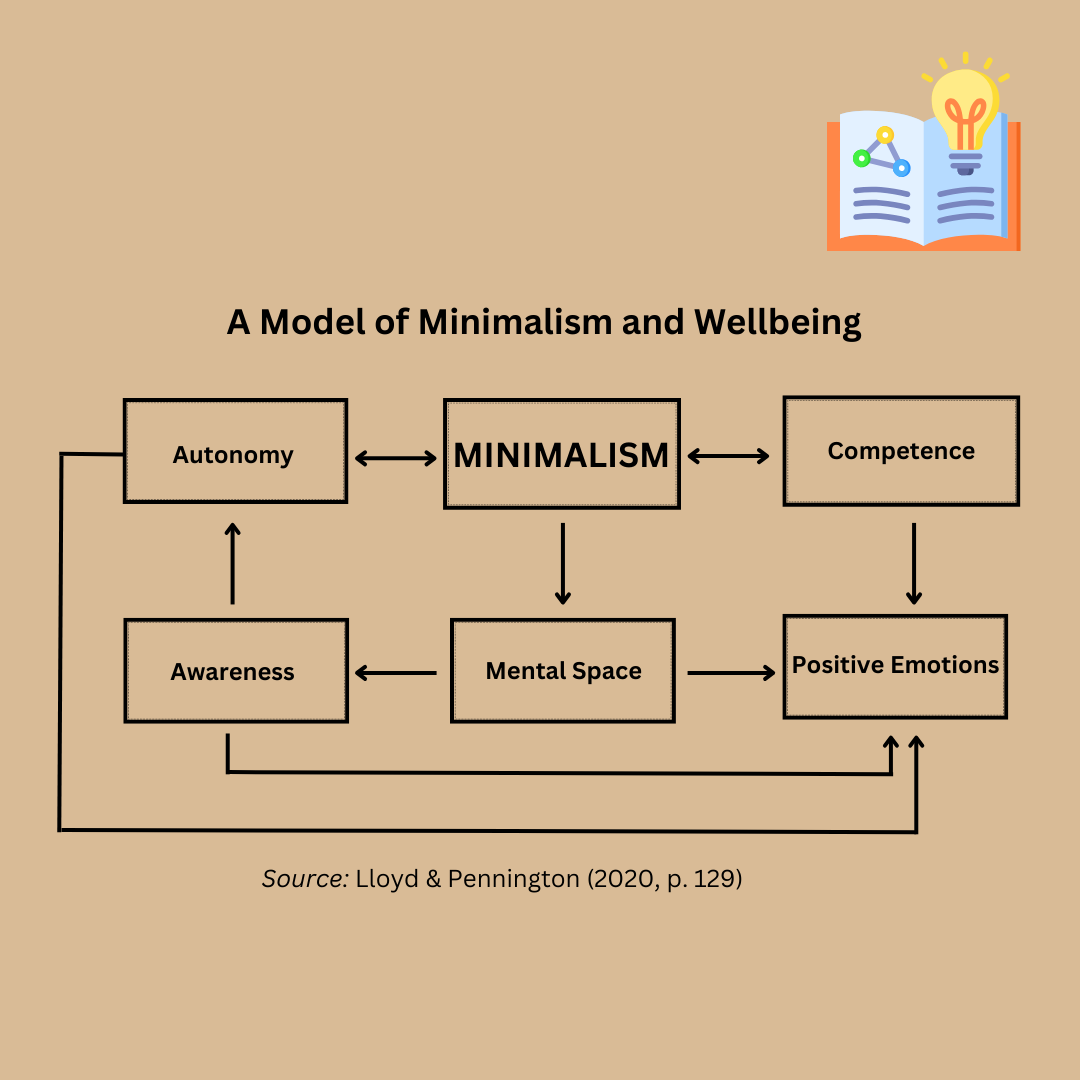Minimalism and Wellbeing: A Fresh Perspective on Better Living
"I make myself rich by making my wants few." ~ Henry David Thoreau
Daydreaming or Reality
Imagine waking up each day with a clearer mind and a lighter heart, surrounded only by the things that truly matter. It’s not just a daydream—this is the reality for those who’ve embraced minimalism. According to one of the largest surveys conducted on intentional living, a remarkable 87% of participants said they felt happier after simplifying their lives (Alexander & Ussher, 2012). I can certainly attest to this.
But what’s driving this surge in happiness? Is it possible that adopting a less-is-more or less-is-better mindset can genuinely enhance our wellbeing?
Recent research suggests there’s a clear connection between minimalism and improved mental health, even though the findings are still evolving (Devenin & Bianchi, 2023; Druica et al., 2023). Early theories point to five core elements of minimalism that linked to wellbeing (Lloyd & Pennington, 2020). The five elements are autonomy, awareness, mental space, position emotions, and competence. But interestingly, they leave out some crucial components—like spirituality, personal growth, or the quest for deeper meaning. Many of us consider these essential to living a fulfilled life, and ongoing research could help fill in the blanks.
A Model of Minimalism and Wellbeing
So, why does any of this matter to you?
For one, simplifying your life might just be the key to reducing stress, sharpening your focus, and finding peace that often feels out of reach in today’s hyper-consumerist world. But it’s not all sunshine and rainbows—like any major lifestyle shift, minimalism has its challenges. The good news is that understanding how minimalism impacts mental and physical health can offer practical benefits and solutions.
The reason for me to embark on this research isn’t just theoretical—it’s personal. It’s about finding a new way to live in a world that constantly tells us to want more, buy more, and achieve more. Minimalism shows us that we can thrive through simplicity, fulfillment, sustainability, and meaning making.
More Than Personal
Minimalism isn’t only about personal wellbeing—it has the potential to reshape the way we think about consumption and sustainability on a much broader scale. Though many minimalists don’t adopt this lifestyle out of environmental concerns, minimalism naturally challenges the “growth hegemony” that fuels consumerism (Meissner, 2019). If enough individuals begin practicing anti-consumption behaviors, minimalism could become a collective force, contributing to a more sustainable society (Haswell, 2021).
In this way, minimalism isn’t just a personal journey—it could become a global movement, promoting both individual wellness and ecological sustainability. By choosing to live with less, we not only improve our own lives but also help reduce the strain on our planet’s resources. After all, no one can truly flourish if planet Earth collapses under the weight of the looming climate crisis.
Global Flourishing
As my own study into the connection between minimalism and wellbeing unfolds, I hope to provide a guide—a roadmap for anyone curious about living with less. Minimalism isn’t just about decluttering your home; it’s about decluttering your mind, your heart, and your life. Could adopting this mindset help you feel more balanced, focused, and happier? What if this movement toward living with less is not merely a personal choice, but a step toward flourishing on a global scale?
Are you ready to rethink what it means to live better with less?
References
Alexander, S., & Ussher, S. (2012). The voluntary simplicity movement: A multi-national survey analysis in theoretical context. Journal of Consumer Culture, 12(1), 66–86. https://doi.org/10.1177/1469540512444019
Devenin, V., & Bianchi, C. (2023). Trajectories towards a voluntary simplicity lifestyle and inner growth. Journal of Consumer Culture, 23(3), 497–516. https://doi.org/10.1177/14695405221122065
Druică, E., Ianole-Călin, R., & Puiu, A.-I. (2023). When Less Is More: Understanding the Adoption of a Minimalist Lifestyle Using the Theory of Planned Behavior. Mathematics (Basel), 11(3), 696–. https://doi.org/10.3390/math11030696
Haswell, P. M. (2021). Scientist Warning on Why you Should Consume Less; Even if Wider Society Doesn’t. Nature and Culture, 16(3), 29–48. https://doi.org/10.3167/nc.2021.160302
Lloyd, K., & Pennington, W. (2020). Towards a Theory of Minimalism and Wellbeing. International Journal of Applied Positive Psychology, 5(3), 121–136. https://doi.org/10.1007/s41042-020-00030-y
Meissner, M. (2019) Against accumulation: lifestyle minimalism, de-growth and the present post-ecological condition. Journal of Cultural Economy, 12:3, 185-200, DOI: 10.1080/17530350.2019.1570962



